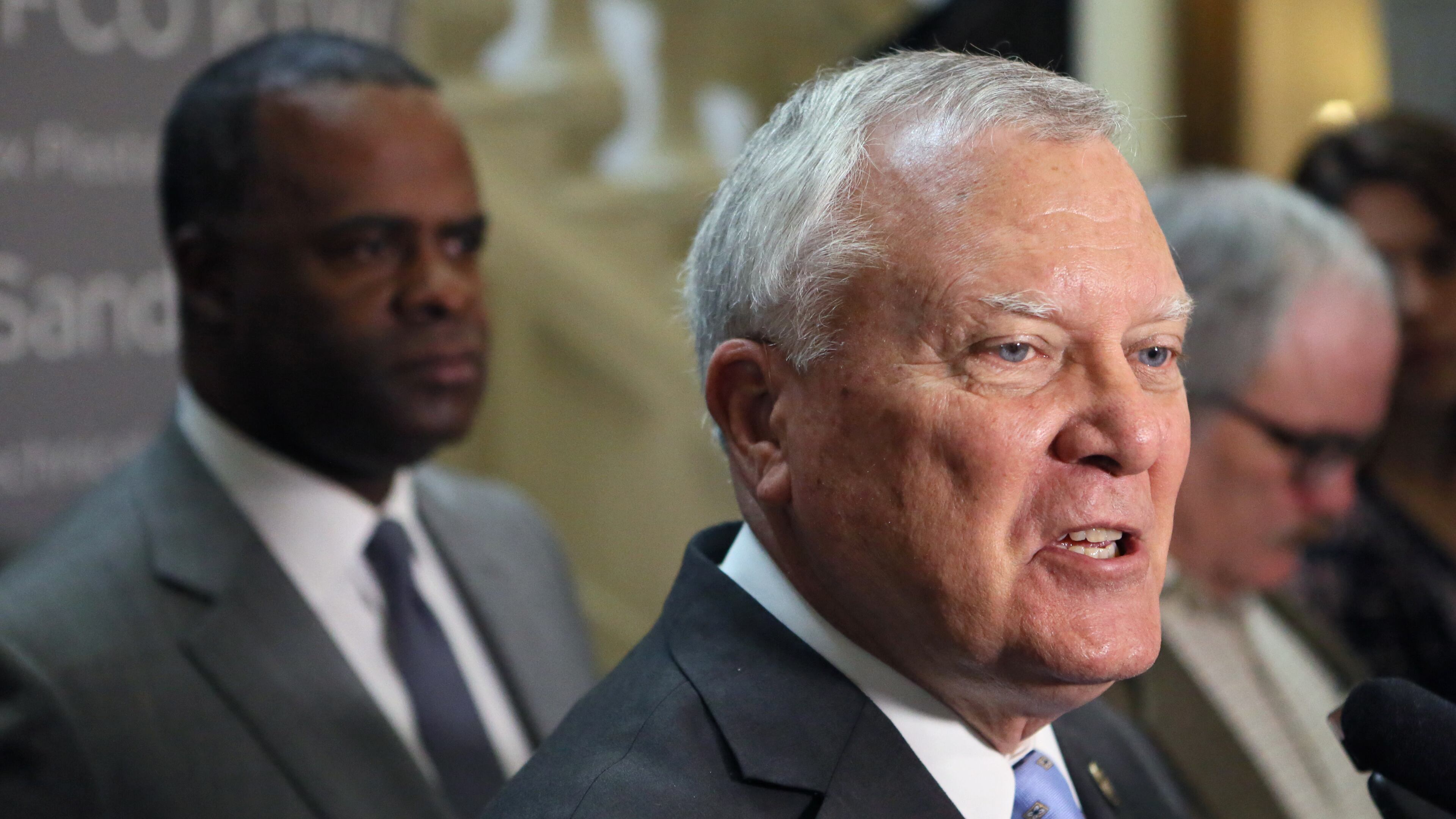Kasim Reed opposes failing schools plan, defying his GOP BFF

Even Gov. Nathan Deal's fabled friendship with Atlanta Mayor Kasim Reed has its limits.
The bipartisan duo showered each other with praise at a Wednesday press conference announcing a new IT hub in Atlanta, and Hizzoner bit his tongue after the event when he was pressed on whether he supported Deal’s failing schools initiative.
But earlier this week, Reed told the Buckhead Rotary Club that he opposed the governor's constitutional amendment creating an Opportunity School District, joining the ranks of other high-profile Democrats fighting the ballot initiative. And later Wednesday night he elaborated on his position.
“I oppose this proposal because I believe it will inevitably result in the diversion of public funds for public schools to private entities, with inadequate oversight, and without accountability to parent,” the Democrat said in a statement. “I believe such a change in our state, through the permanent measure of a constitutional amendment, will weaken our public schools and create conditions where they become the last resort for desperate families, rather than a symbol of excellence and source of community pride.”
More: Deal steps up fight with school boards over Opportunity School plan
Reed's opposition is another blow to the governor's plan for a new statewide district that would take control of schools deemed to be persistently failing. Deal has tried to tailor his pitch for the initiative, the cornerstone of his second-term agenda, to Democrats in low-performing schools as a way to reverse a cycle of poverty. (To Republicans, he's also ratcheting up his argument that failing schools breed crime.)
But Reed has aligned himself with other leaders in his party, as well as powerful educators groups and more than 40 school boards, who worry it would hand control of local schools to an aloof entity that’s not accountable to voters and give the governor’s office too much power.
An Atlanta Journal-Constitution poll released last week found nearly 60 percent of voters would vote against the amendment, though Deal’s allies say they remain confident that the question on the ballot, which is more favorably worded, will pass next month.
More: Nathan Deal’s personal investment in Amendment 1
At Wednesday's press conference, Reed stood silently behind Deal as he elaborated on his fear that students in failing schools are more likely to turn to a life of crime – and more likely to target people in affluent neighborhoods.
“It has no racial overtones at all,” he said. “It’s a matter of fact.”
After Deal left, Reed was asked if he agreed with the governor’s sentiment.
“What I know about the governor is that he has a deep passion about the care for the kids of this state,” said Reed. “The way we get to it may be a bit different, but I don’t question his heart.”
Here's Reed's full statement:
I oppose this proposal because I believe it will inevitably result in the diversion of public funds for public schools to private entities, with inadequate oversight, and without accountability to parents. I believe such a change in our state, through the permanent measure of a constitutional amendment, will weaken our public schools and create conditions where they become the last resort for desperate families, rather than a symbol of excellence and source of community pride.
I am a proud graduate of Fulton County schools. My brothers and I attended Utoy Springs Elementary and Westwood High School, now Westlake High. Our success demonstrates what is possible when children have access to strong public institutions. I want the same for all children in the City of Atlanta and across our great state.
Certainly, we must acknowledge that some of our state's public school systems – including Atlanta Public Schools – face challenges. I understand the frustration among parents and community advocates with the slow pace of change.
I also appreciate the strong desire by proponents of this measure to take action now. But I disagree with the method.
I emphatically believe that the Georgia General Assembly is the right body to make changes to state education and school policy, through the legislative process.
When I served in the General Assembly, I had to make some tough choices, knowing I would need to defend my decisions to voters in my district. By asking voters to decide on a constitutional amendment, responsibility automatically shifts away from the legislators who are elected to address our needs.
A constitutional amendment is the wrong vehicle for reform in an area where so much uncertainty exists. By amending the constitution, the public will be restricted in its future ability to make the many adjustments a program like this will surely need. By creating a new bureaucracy accountable only to the executive branch, parents are disempowered and discouraged from being active and engaged in their local school system.
Ultimately, I cannot support any measure that weakens our public school system in this manner and threatens its future."

